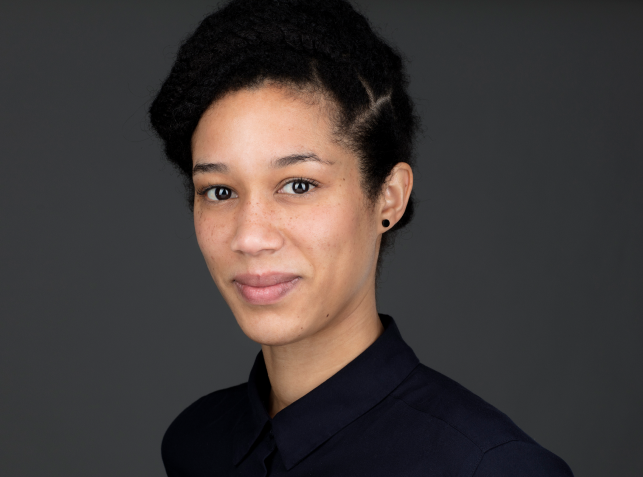
Sophie Osotimehin

Sophie Osotimehin is Associate Professor of Economics at the University of Quebec at Montreal. She studies macroeconomic productivity and the allocation of resources across firms. She obtained a PhD in Economics from the Paris School of Economics – Paris 1 University, with a fellowship from the Center For Research in Economics and Statistics.
Follow Sophie on
Website
Follow Sophie on
Website
Sophie Osotimehin is Associate Professor of Economics at the University of Quebec at Montreal. She studies macroeconomic productivity and the allocation of resources across firms. She obtained a PhD in Economics from the Paris School of Economics – Paris 1 University, with a fellowship from the Center For Research in Economics and Statistics.
In their own words…
IEA – Can you tell us a little bit about your life story and how you got interested in economics and decided to pursue an academic career?
Sophie – I am Franco-Nigerian. My parents decided to move the family from Nigeria to France—where my mother is from— to give us a better life and more opportunities. I sometimes wonder what my life would have been liked if we had stayed in Nigeria.
I have always been curious about the world around me and fascinated by societies and human interactions. This interest led me to study business and economics in my first year of college, and I quickly realized that I wanted to become an economist. It took me more time to decide to pursue an academic career. In the end, I was drawn to the intellectual freedom and the opportunity to engage in lifelong learning that a career in academia offers.
IEA – Much of your recent research is about the link between microeconomic phenomena, such as “distortions” or linkages, and their macroeconomic effects on growth or business cycles. Can you tell us a bit about your contributions in this broad area?
Sophie – My research aims at better understanding aggregate output and productivity by taking a granular perspective and accounting for firm and sectoral heterogeneity. Specifically, I study the role of input allocation across firms and how distortions that reduce the efficiency of the allocation can lead to lower aggregate productivity. My first contribution in this area has been to propose a decomposition of aggregate productivity changes that isolates the role of allocative efficiency. Applying this decomposition on French firm-level data, I find that allocative efficiency tends to increase during downturn and hence reduces the volatility of aggregate productivity.
Since then, I have been pursuing two lines of research. First, I have explored how allocative distortions affect firm-level productivity and innovation—the other key determinants of aggregate productivity. Second, I have investigated how the network structure of production (the input-output linkages, which result from firms purchasing and selling goods and services from one another) shapes the aggregate implications of distortions. For example, in a recent work with Latchezar Popov, we study how market power can have different impacts on aggregate productivity depending on the input-output linkages. For our analysis, we rely on analytical results, obtained from approximating aggregate productivity, as well as on the numerical solution of the model calibrated on data from 35 countries. We find that market power in a given sector has a more detrimental impact on aggregate productivity if the sector is downstream than if the sector is upstream. Properly accounting for the low substitutability between inputs is key to establishing this result. Assuming a higher input substitutability, as is often done in the literature, would lead to substantially overestimating the effects of markups in upstream sectors.
Understanding the aggregate implications of the linkages between firms and sectors is a fascinating and complex topic and I am currently working on other projects related to this topic.
IEA – Women researchers, especially from developing countries, sometimes face serious obstacles in accessing research networks at the frontier of economics. Would you have some advice for younger scholars?
Sophie – It can feel difficult or impossible to access certain research networks without having studied in the “right” graduate school. In my case, when I moved from France to the US for my first job as an assistant professor at the University of Virginia, I found myself with a limited network; most of the people I knew in the profession were in Europe. To make up for it, I made efforts to connect with people in my field in the US. These connections have made a big difference in my experience as a young researcher, not only in terms of expanding my opportunities but also in bringing a sense of belonging, a sense of community, which I find so important.
My advice would be to take advantage of every chance you have to talk to researchers in your field, ask them questions about their work, and discuss your own projects with them. Conferences are a great place to start. Make sure to attend social events as much of the interaction happen there. It will be intimidating at first and awkward at times, but it will become less and less so.
In addition to conferences, many professional associations offer networking opportunities, as well mentoring and professional development workshops. Definitively attend these. You will get advice on how to navigate the profession and you will end up meeting many interesting people. Some of the associations you can look up are the Diversity Initiative for Tenure in Economics, the Association of the Advance of African Women Economist, the Committee on Status of Women in the Economics Profession of the AEA.
Another way to interact with researchers in your field is to spend time at another research institution. Contact somebody you know or seek the help of senior colleagues or advisors to arrange a visit. You will not only meet people at the institution, but also any invited speakers or guests.
Finally, you could also organize a workshop on a topic related to your research. This is an excellent way to meet others in your field and make meaningful connections.